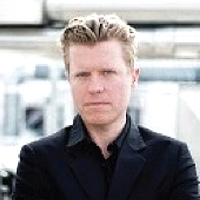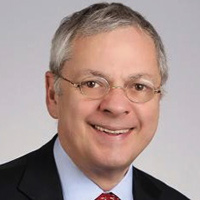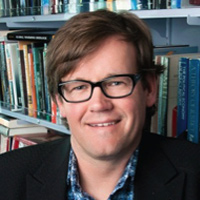
Energy, Climate, and Security
IAS 3653.001
Bo Kong, International and Area Studies
This course investigates how states simultaneously balance energy, climate change and national security concerns. Its fundamental premise is that energy, climate change and national security are elements of a complex system that cannot be addressed as separate and independent domains of policy. Instead, they interact, co-evolve, are “interrelated into an organic whole,” and constitute what Warren Weaver defines as a problem of “organized complexity,” to which linear approach is no longer appropriate. Tackling these problems simultaneouly requires complex, dynamic, forward-looking, and systematic solutions. However, the manner in which these problems are addressed involves trade-offs, creates winner and losers, impacts the way of life of our current and future generations, affect peace and stability, and carries profound national and global consequences. Thus, it is important that all concerned and engaged citizens in the 21st century not only understand the complexities of these defining challenges of our time, but also be able to contribute to the debate and development of optimal policy responses. This course aims to provide students with an opportunity to analyze this complex problem set, interact with some of the world’s leading thinkers and practitioners, and foster their ability to develop actionable policy responses in a way that takes into account of the associated risks, uncertainties, and tradeoffs.
The Role of Energy in Empowering ISIS

Tuesday, September 8, 2015
12:00 p.m.
Oklahoma Memorial Union
Scholars Room (3rd Floor)
View Lecture Flyer [PDF]
Daniel Ahn
Senior Advisor to the Chief Economist, U.S. Department of State
Dr. Daniel Ahn is Senior Advisor to the Chief Economist at the US Department of State, where he is responsible for research and policy analysis on a wide range of international economics and finance issues. Previously, he led policy analysis on energy issues at the State Department’s Bureau of Energy Resources.
He is also a Professorial Lecturer at Johns Hopkins School of Advanced International Studies and an Adjunct Professor in the Department of Economics at Georgetown University, where he teaches graduate courses on Energy Economics and Finance.
The EU Regulatory State and the Global Political Economy

Thursday, September 17, 2015
12:00 p.m.
Oklahoma Memorial Union
Regents Room (3rd Floor)
View Lecture Flyer [PDF]
Andreas Goldthau
Professor, Central European University
Andreas Goldthau is Professor and former Head of the Public Policy Department at the Central European University, and Associate with the Geopolitics of Energy Project at Harvard’s Belfer Center for Science and International Affairs. He is also a Fellow with the Global Public Policy Institute in Berlin. His academic career includes work with the Paul Nitze School of Advanced International Studies (SAIS); Johns Hopkins University; and RAND Corporation, a research organization that focuses on public policy solutions; the German Institute for International and Security Affairs (SWP); the Elliott School of International Affairs; George Washington University and the Institute for East European Studies at Freie University of Berlin.
The Remaking of the Global Energy Order in the Era of Tectonic Change

Thursday, October 15, 2015
12:00 p.m.
Oklahoma Memorial Union
Regents Room (3rd Floor)
View Lecture Flyer [PDF]
Edward Morse
Global Head of Commodities, CITI Research
Edward Morse is Managing Director and Head of Global Commodities Research at Citigroup Global Markets, Inc. in New York.
He previously held similar positions at Lehman Brothers, Louis Capital Markets and Credit Suisse. He also worked at Hess Energy Trading Co. (HETCO). Widely cited in the media, he is a contributor to publications such as Foreign Affairs, Financial Times, The New York Times and The Washington Post. He worked in the US government at the State Department, and later was an advisor to the United Nations Compensation Commission on Iraq. In addition, he was an advisor to the US Departments of State, Energy and Defense, as well as the International Energy Agency on issues related to oil, natural gas and the impact of financial flows on energy prices. A former Princeton professor, Morse is also author of numerous books and articles on energy, economics and international affairs. He also published Petroleum Intelligence Weekly among other trade periodicals.
Collective Action on Climate Change

Tuesday, November 17, 2015
6:00 p.m.
Zarrow Hall
J.J. Rhyne Room (Room 145)
View Lecture Flyer [PDF]
David Victor
Professor and Director, University of California San Diego
David Victor is Professor of International Relations and Director of the Laboratory on International Law and Regulation. His research focuses on highly regulated industries, such as electric power and how regulation affects the operation of major energy markets.
Author of Global Warming Gridlock, he explains why the world has not made much diplomaticprogress on the problem of climate change while also exploring new strategies that would be more effective. The book was recognized by The Economist as one of the best books of 2011. Prior to joining the faculty at UC San Diego, Victor served as Director of the Program on Energy and Sustainable Development at Stanford University, where he was also Professor of Energy and Environmental Law at Stanford Law School. At Stanford he built a research program that focused on the energy markets of the major emerging countries — mainly Brazil, China, India, Mexico and South Africa.

